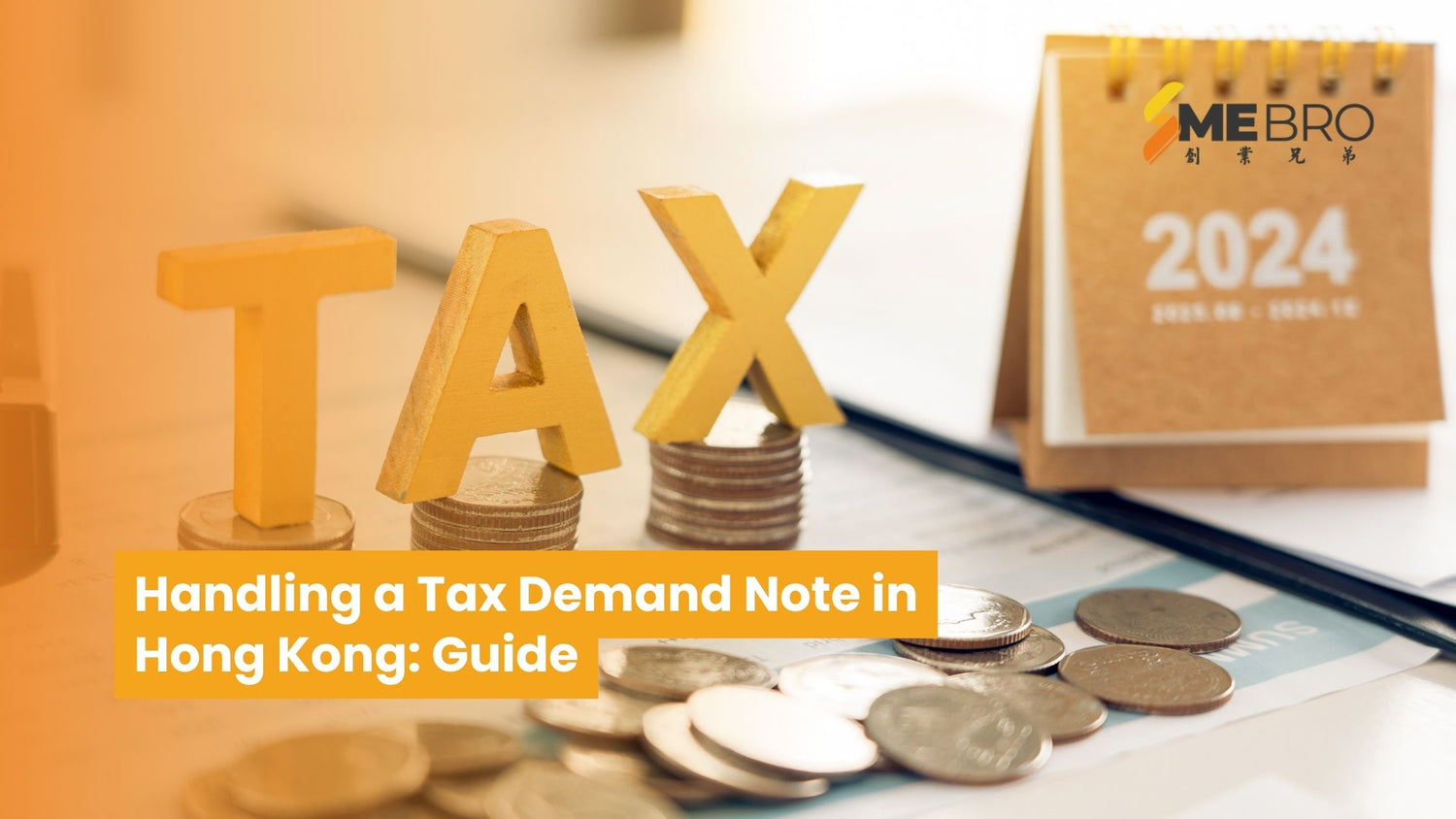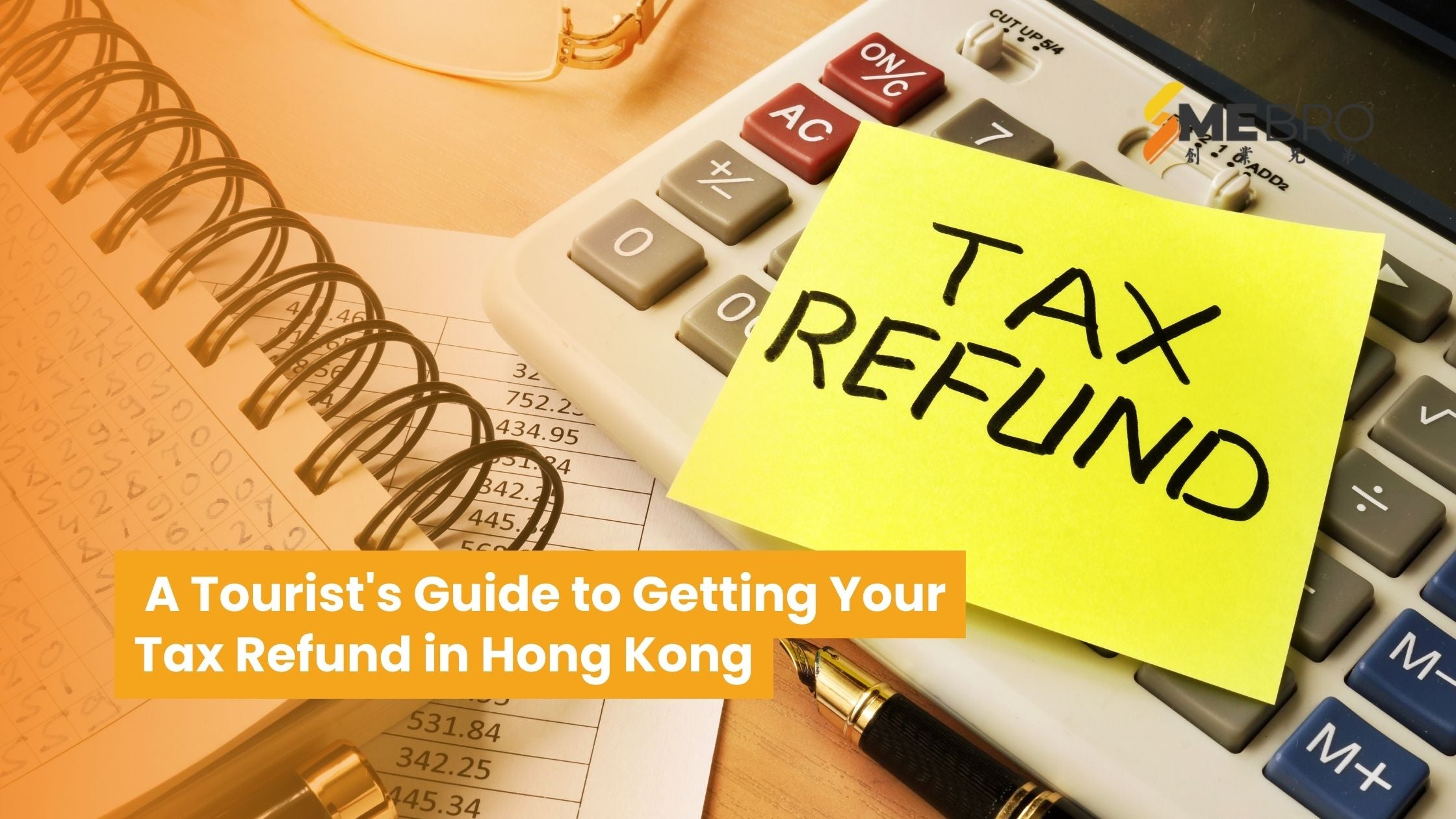As a taxpayer in Hong Kong, receiving a tax demand note from the Inland Revenue Department (IRD) can be a daunting experience. This legal document outlines your tax obligations, and failure to handle it appropriately can lead to severe consequences.
In this comprehensive guide, we'll demystify the tax demand note, equipping you with the knowledge to navigate it confidently and safeguard your interests.
Understanding the Tax Demand Note
A tax demand note, also known as a tax assessment or demand note, is an official document issued by the IRD to individuals or entities liable for taxation under the Inland Revenue Ordinance (IRO).
It serves as a formal notification of the tax amount due for a specific assessment year, typically based on the information provided in your tax return or an estimated assessment.
The tax demand note is a crucial document that demands your utmost attention. Neglecting its contents or failing to comply with the stipulated requirements can result in penalties, surcharges, and even legal repercussions.
Decoding the Tax Demand Note
Upon receiving a tax demand note, it's essential to carefully review its contents to ensure accuracy and understand your obligations fully. The document typically contains the following key elements:
Basis of Assessment
The tax demand note will specify the basis of the assessment, indicating whether it is a regular assessment based on your filed tax return, an estimated assessment issued in the absence of a tax return, or an additional assessment resulting from a reassessment of your tax liability.

Understanding the basis of the assessment is crucial, as it determines the actions you need to take, such as filing an objection or submitting an outstanding tax return.
Payment Details
One of the most critical sections of the tax demand note is the payment details, which outline the total tax amount payable and the respective amounts due for the first and second installments, if applicable.
It also specifies the due dates for each installment, typically highlighted in a prominent color for easy identification.
Failure to pay the tax on time can result in penalties and surcharges, so it's imperative to take note of these deadlines and ensure timely payment.
Tax Computation
The tax demand note typically includes a clear and detailed tax computation, breaking down your income, deductions, allowances, and the assessed tax amount for both the final and provisional assessments.
This section also indicates whether the tax is calculated at progressive rates or a standard rate, providing transparency into the calculation process.
Assessor's Notes
To aid in understanding the tax demand note, the IRD includes standard Assessor's Notes, which are user-friendly explanations and clarifications related to various aspects of the assessment.
These notes can be invaluable in comprehending the document's contents and addressing any potential queries or concerns.
Detachable Payment Vouchers
For your convenience, the tax demand note includes detachable payment vouchers for the first and second installments.
When making payments, you only need to detach and submit the relevant voucher, eliminating the need to enclose the entire document.
Time Limits and Deadlines
Adhering to the time limits and deadlines outlined in the tax demand note is crucial to avoid penalties and legal consequences. Here are some essential deadlines to be aware of:
Lodging an Objection
If you disagree with the tax assessment, you have the right to lodge a written objection stating the precise grounds for your objection.
However, this objection must be filed within one month from the date of the tax assessment. Late objections may be considered only in exceptional circumstances, such as absence from Hong Kong, illness, or other reasonable causes.
It's important to note that if no valid objection is lodged within the specified time frame, the tax assessment becomes final and conclusive.
This means that even if the tax amount is later found to be excessive, no revised assessment will be issued, and the overpaid tax will not be refunded.
Applying for Holdover of Provisional Tax
Taxpayers who anticipate a significant drop in their assessable income or profits compared to the previous year may be eligible to apply for a holdover of provisional tax.
This application must be submitted in writing, either individually or through a professional tax representative, by the deadline specified in the tax demand note.
To qualify for a holdover, the assessable income or profits must be less than 90% of the preceding year's figures. Failure to apply within the stipulated time frame may result in the rejection of your request.
Consequences of Non-Compliance
It's crucial to understand the severe consequences of failing to comply with the requirements outlined in the tax demand note:
Late Payment Penalties
If you fail to pay the tax by the due date, an initial surcharge of up to 5% of the amount in default may be imposed.
If the tax and the initial surcharge remain unpaid for more than six months, an additional surcharge of up to 10% of the total outstanding amount can be levied.
Finality of Assessment
As mentioned earlier, if no valid objection is lodged within the specified time frame, the tax assessment becomes final and conclusive.
This means that even if the tax amount is later found to be excessive, no revised assessment will be issued, and the overpaid tax will not be refunded.
Legal Consequences
In extreme cases of non-compliance, the IRD may initiate legal proceedings, which could result in fines, penalties, or even imprisonment, depending on the severity of the offense.
Seeking Professional Assistance
While understanding and complying with the tax demand note is essential, the process can be complex, particularly for individuals or businesses with intricate tax situations.
In such cases, seeking professional assistance from a qualified tax advisor or accountant can be invaluable.
Professional tax advisors can provide expert guidance on interpreting the tax demand note, assessing the accuracy of the assessment, and advising on the best course of action, such as lodging an objection or applying for a holdover.
They can also represent you in dealings with the IRD, ensuring that your interests are protected and that you meet all legal requirements.
Conclusion
Receiving a tax demand note from the IRD can be a daunting experience, but with the right knowledge and approach, it can be navigated successfully.
By carefully reviewing the document, understanding the time limits and deadlines, and taking appropriate action when necessary, you can avoid penalties, surcharges, and legal consequences.
Remember, seeking professional assistance can be invaluable, especially in complex tax situations.
By following the guidelines outlined in this guide and seeking expert advice when needed, you can confidently handle your tax demand note and maintain compliance with Hong Kong's tax regulations.



